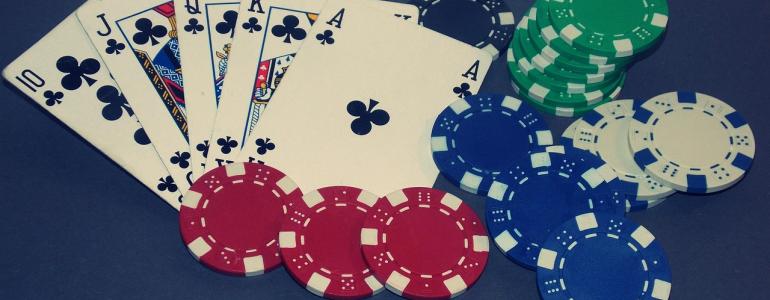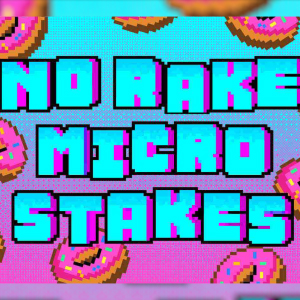Which Poker Hands Have the Highest Rate of Success?
3 weeks ago

17 Sep
When you're sat at a poker table, the cards you hold determine everything. Some hands win more than others. It's that simple. But which ones should you back, and why do they work so well? We'll break down the hands that consistently put money in your pocket.
Premium Starting Hands: The Big Hitters
Pocket aces are poker royalty. They win roughly 85% of heads-up battles before the flop even comes down. You should almost always play them hard, no matter where you're sitting. They're that good.
That being said, there are moments when it’s appropriate to fold aces, and often being able to make a good fold from a strong starting position is the difference between a good poker player and a good one. Having a strong pair pre-flop is a great position to be in, but it’s by no means a guarantee you’ll win the pot. It can feel awful to lay down the best starting hand, but if you know your opponent has a stronger hand after the flop, it’ll feel better than crashing out of a game.
Kings come next. Brilliant cards, though you need to watch for aces on the board. Still, they crush most other hands and deserve aggressive play. Queens round out this elite group. They’re powerful, but you'll need to respect overcards when they appear.
These three hands form the backbone of any winning strategy. Miss opportunities with them, and you're throwing money away.
Ace-King: The Drawing Powerhouse
Ace-king suited might not be a made hand, but it connects beautifully with flops. You're hunting straights, flushes, and strong top-pair situations. The versatility makes it incredibly valuable.
What makes AK special? It dominates weaker ace hands completely. Hit your ace, and you're likely ahead of anyone else playing an ace with a weaker kicker. The straight possibilities add extra punch, particularly when several players see the flop.
Don't treat it like a premium pair though. It's a drawing hand that needs help, but when it gets that help, the results can be spectacular.
Mid-Range Pocket Pairs: Solid and Reliable
Jacks through eights offer consistent profits when handled properly. These hands shine in specific spots and can absolutely demolish opponents when you flop a set. The maths work beautifully. You'll hit your set about 12% of the time, and when you do, opponents rarely see it coming.
Jacks and tens often stay ahead on many flop textures. They're genuine overpairs more often than you'd think. Nines and eights need more careful handling, especially on dangerous boards with lots of straight and flush possibilities.
Position matters enormously here. These hands play much better when you can see what others do first. Acting last gives you crucial information that transforms marginal decisions into clear ones.
Suited Connectors: The Sneaky Pot Winners
Cards like 9-8 suited or 7-6 suited look innocuous. Don't be fooled. They pack a serious punch when the conditions align properly. The implied odds potential is massive. When these hands hit, they often hit big.
You need the right situation though. Multi-way pots with deep stacks are ideal. The potential payoff justifies the risk. In heads-up battles against tight opponents, they lose their appeal quickly. You want multiple opponents to make the economics work.
Be selective. These aren't hands to play from every position in every situation. But in the right spot? They can win enormous pots.
Why Your Seat Matters More Than You Think
Position changes everything. Premium hands work from anywhere, but those marginal holdings need late position to shine properly. Acting last gives you information that turns break-even hands into money makers.
Early position demands much tighter standards. Those speculative hands that look tempting become problematic when you're first to act with unknown threats behind you. Facing potential raises and re-raises makes them far less attractive.
The difference between early and late position can turn the same hand from a fold into a raise. That's how significant position really is.
Tournament Play Changes the Game
Tournament poker creates different dynamics entirely. Stack sizes relative to blinds shift everything. Short stacks often face push-or-fold decisions with hands that would be easy calls in cash games.
Deep tournament stacks early on reward patience and post-flop skill. Bubble play tightens everyone up, making premium hands even more valuable. Cash games maintain steadier dynamics, allowing for more consistent hand selection.
If you make it past the bubble, but quickly bust afterwards, there can be the temptation to wade back into another tournament looking to run deep. Jumping straight into a new tournament would entail another prolonged stretch of concentration, however, and could lead to you playing tilted.
To ensure you’re playing your best poker, it’s often best to take a break from the pressures of a tournament. You could dip into a cash game if you still fancy playing cards, or even explore many of the promotional offers provided by casinos, which could include free spins or free entries to small-scale games.
Getting Maximum Value from Strong Hands
Having great cards doesn't guarantee profits. You must extract value whilst protecting against draws. This means betting when ahead and recognising genuine threats. Board texture reading becomes essential.
Pocket kings look fantastic until the flop comes jack-ten-nine. Suddenly, your premium hand faces serious danger. Recognising these situations separates winning players from losing ones.
Even pocket aces lose sometimes, about 15% of the time, actually. Consecutive losses happen to everyone. Proper bankroll management protects you when variance strikes. Set limits and stick to appropriate stakes for your funds.
The highest success rate hands combine mathematical edges with smart positional play and solid post-flop decisions. Master these basics, and you'll win far more consistently. It's not complicated, but it does require discipline and patience. The cards will come, just make sure you're ready when they do.







Comments
You need to be logged in to post a new comment